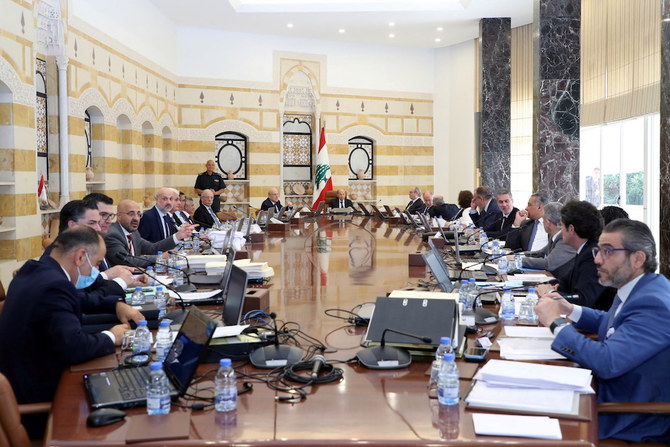
- ARAB NEWS
- 06 Jul 2025

BEIRUT: Lebanon’s cabinet has passed an economic recovery plan designed to pull the country out of a three-year financial meltdown, two ministerial sources told Reuters on Friday.
Ministers agreed the measure in the cabinet’s final session hours before losing decision-making powers, following the election of a new parliament on May 15 that is set to designate a new prime minister.
The plan includes several measures that are prerequisites for an International Monetary Fund bailout, including a plan to restructure the banking sector and reforming a banking secrecy law.
Lebanon reached a preliminary agreement with the IMF in April that listed a number of prior actions that the fund said must be implemented before it could reach a full deal.
In late April, the Association of the Banks in Lebanon (ABL) rejected a draft government recovery plan that it said would leave banks and depositors shouldering the “major portion” of a government-estimated $72 billion hole in the financial sector.
An ABL spokesman did not immediately respond to a request for comment on Friday’s events.
Lebanon’s banks have been major lenders to the government for decades, helping to finance a wasteful and corrupt state that tipped into financial meltdown in 2019.
The collapse has resulted in depositors being shut out of their savings as the local currency lost more than 90 percent of its value.
Reuters